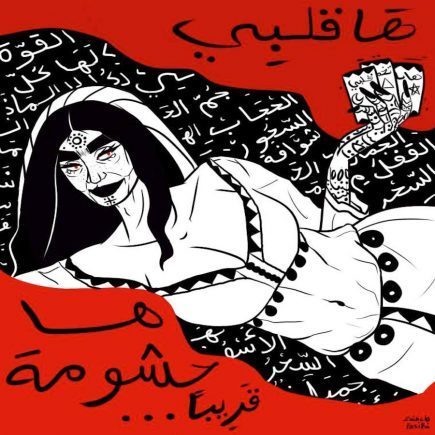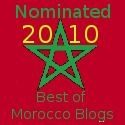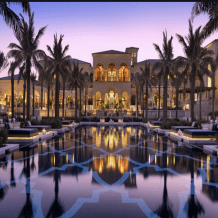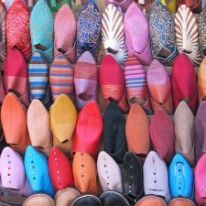
On September 12, 2019, bookshops in French-speaking countries will begin to carry the provocative Moroccan art comic book Hshouma. The work, which means taboo in Arabic, was written by 24-year-old Fes born Zainab Fasiki. The mechanical engineer graduate used the politically charged magazine to address body and sexuality taboos in Morocco.
On her Facebook page, Fasiki wrote: “In Morocco, it is Hshouma to discuss some topics, including sexuality and the body, and even more wanting to live them. To understand this, I propose you to watch together with the reign of Hshouma, in its educational, religious and political dimension. I’ve been working so hard to make this book, a year of research and travel around the world to find the answers to my questions. This book is also a letter for all the Moroccan people, which I wrote and drawn, a letter to achieve peace and love. A big thank you to the French Publishing House Massot Editions, for believing in me and for this opportunity.”
The comic work also strives to spread the message of living together in a peaceful environment, free from violence, and with equal gender roles.
Zainab’s upbringing and educational pursuits offer insight into her passion to dismantle patriarchy. Her parents are both conservative and religious. Additionally, she is the youngest of six brothers. These factors created an environment where certain expectations were placed on her to be a traditional kind of Moroccan women, yet Zainab wanted to study engineering. It was not easy to gain family approval. “My father says that I have disappointed him (because I entered engineering). “It is not what was expected of me, of one hundred students, we were only ten girls. It is not supposed to be typical of a woman.”
In spite of the obstacles Fasiki has endured, the multi-talented illustrator continues to spread her message of gender equality. She also supports Moroccan women to raise their voices. After her university, she created the Women Power collective, a social initiative that aims to encourage women to involve more in art fields via residencies, events, and art.
“Between us, there has been a fundamental change that makes things easier: social media… networks are a weapon, there are no censors and it is a space, the only one for Arab women, of freedom.”
On April 26, 2019, Fasiki exhibited part of Hshouma at the African Film Festival of Tarifa.
Hshouma will be available in Morocco and as well as French-speaking countries beginning September 12, 2019. It is currently only available in French, however, there are plans to translate it into several languages.




